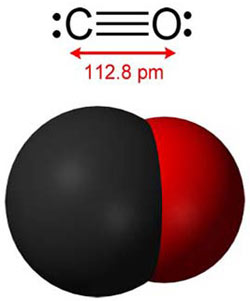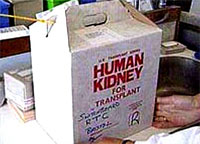Use low-dose CO to prevent graft rejection
British scientists are developing a safe way to use low-dose carbon monoxide (CO) for patients with organ transplants, contributing to preventing rejection after surgery.

According to British scientists, low-dose CO helps to expand blood vessels and reduce inflammation, contributing to anti-rejection after surgery.(Photos: Wikipedia)
Scientists at the University of Sheffield (UK) have developed a new technique to release low-dose CO into the body through molecules responsible for ' transporting ' CO. According to the research team, although the use of this toxic gas is very dangerous, small doses of CO will help expand blood vessels and reduce inflammation, contributing to enhancing the viability of the transplanted organs. body.
In this new technique, experts use water-soluble molecules, called 'CO release molecules' (CO-RMs). When patients swallow or are given these molecules, they help with the prescribed doses of CO.
According to Professor Brian Mann, the lead researcher, 'By this new method, we can treat transplanted organs to minimize the risk of injury or graft rejection.'
The research team said the results achieved in the lab are very feasible and they hope to test the new technique in humans by 2010. Experts say the discovery will also have other applications. , such as the treatment of progressive rheumatoid arthritis and high blood pressure in the lungs.
According to Professor Mann, conventional CO inhalation may pose a high risk of CO exposure to patients or

Kidneys for transplant.The team said the results achieved in the lab were very positive and they hoped to test the new technique on humans in 2010 . (Photo: BBC)
medical staff. Therefore, this new method helps to avoid that danger. He said that CO is also very effective in fighting reperfusion damage, ie tissue damage occurs when the blood supply works again after a period of discontinuation.
According to Ian Fairlamb, Ph.D. of York University, based on this research, many scientists are trying to develop CO release molecules.
He said: 'CO is a toxic gas, so it seems surprising that CO is beneficial for transplant patients. But in fact, the use of low-dose CO can bring many biological benefits and can be exploited for use in many therapeutic therapies.
Quang Thinh
- Cancer drug prevents transplant rejection
- IPS cells do not cause rejection in experimental mice
- Things to know about kidney transplants
- First implantation of heart and bone marrow transplantation
- Cuba produces nano-pharmaceutical products
- What is paracetamol? Effect and dosage
- Biological glues help to regenerate bone naturally
- How to deal with overdose
- Low-dose radiation is good for health?
- Patients waiting for first transplant to convince the world
- Walk 10 minutes a day to prevent diabetes
- The man who is about to have a head transplant surgery:
 Green tea cleans teeth better than mouthwash?
Green tea cleans teeth better than mouthwash? Death kiss: This is why you should not let anyone kiss your baby's lips
Death kiss: This is why you should not let anyone kiss your baby's lips What is salmonellosis?
What is salmonellosis? Caution should be exercised when using aloe vera through eating and drinking
Caution should be exercised when using aloe vera through eating and drinking